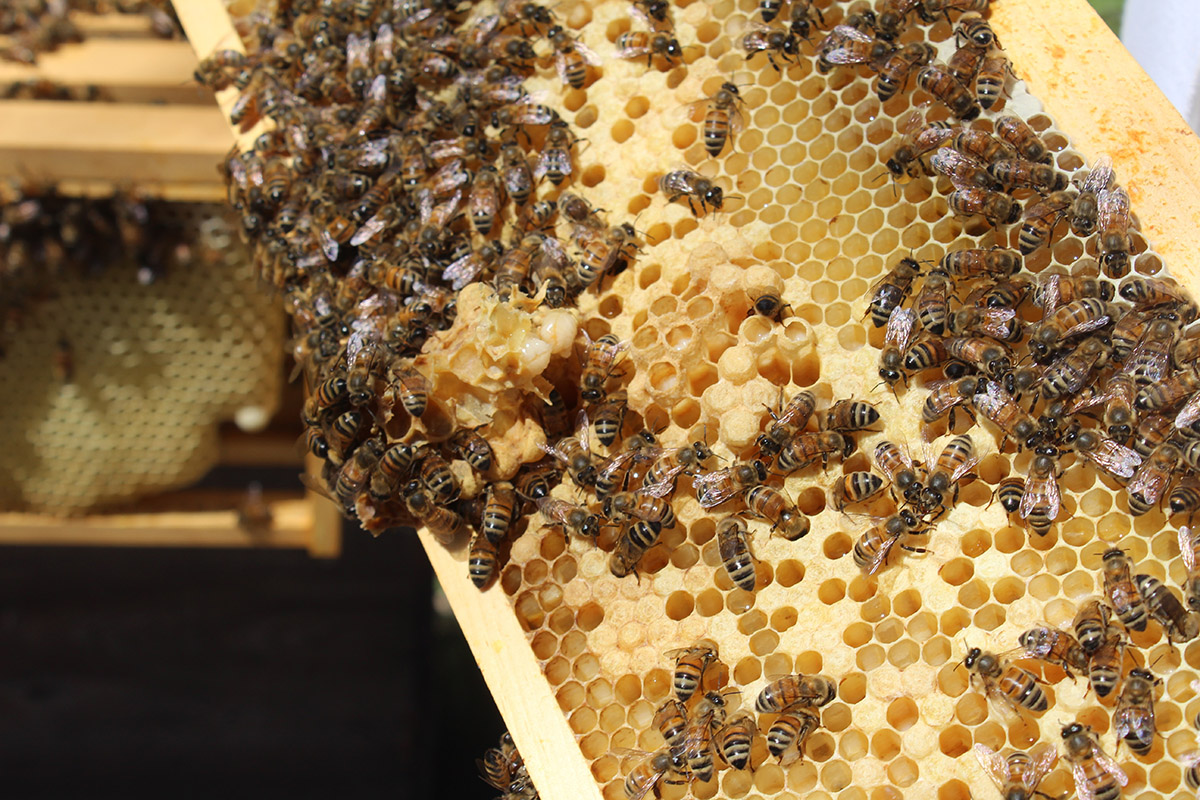Last month, the Canada-British Columbia Agri-Innovation Program (CBCAIP) announced that UFV would receive $170,320 in funding toward the production of an automated honey extraction system for use in local businesses and beyond.
The system, which is designed to automate the labour-intensive process of extracting honey from beehives, is the result of a partnership between UFV’s engineering physics program and the Worker Bee Honey Company in Chilliwack. The project began in 2017, and is spearheaded by associate professor Lin Long, who has previous experience as an electrical engineer and is now co-chair of UFV’s engineering physics program.
The honey extraction project previously received a grant from the National Science and Engineering Research Council (NSERC), which Long said was spent on working out the design of the system. The additional $170,320 received from the CBCAIP last month will go toward the production of a functional prototype, which Long hopes to have finished in less than three months.
“If everything goes according to plan, the prototype can be built in May … and [tested] in the field during this summer,” she said. Long added that her long-term vision for the automated extraction system might also include mass production, although she cautioned that there are no guarantees.
“After this prototype is built, tested, and around for some time, our industry partner, Worker Bee Honey, will probably consider building more,” she said. “If we build more, we can sell in either B.C. or Canada, if we can get [certification] … the current design is built to meet a Canadian standard, but we can modify and then go to the American market.”
Long said that once completed, the device should help to increase the profitability of the beekeeping industry. She also acknowledged that developing sustainable beekeeping methods has become increasingly important given the steep decline in bee populations over the last few decades, and said she believes the new extraction system may be able to help address the growing crisis, albeit in a small way.
“For our system, we have also built in a tracking function,” she said. “For each of the hives [the machine is used in], we can track how much honey is produced, and from this tracking, we can see which hives the queens are functioning better in.”
Long said this feature will allow beekeepers to track overall hive health, and may help them to identify which queens to selectively breed, allowing them to produce stronger bees in higher quantities.
Long added that she sees the project as an excellent opportunity not only for beekeepers and B.C. agriculture, but also for UFV students. She has hired multiple engineering physics students each semester since 2017 to work on the project alongside her, and work on the project is still ongoing.
“This is a real-world engineering project where students can get experience, even while they’re in school,” she said. “The students who’ve worked on this project [in the past], after they graduated, they all got jobs. I really love it.”


